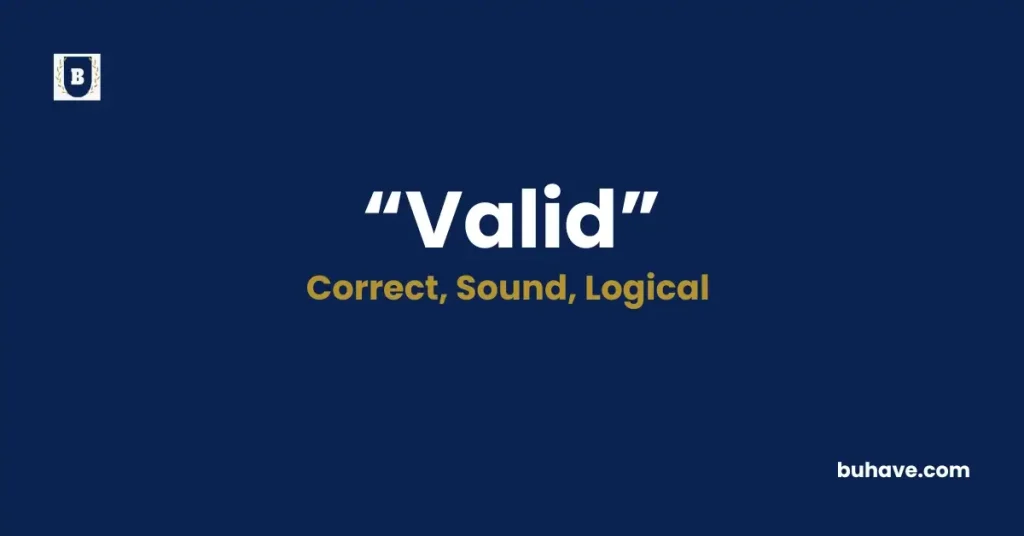The word ‘Valid’ (Adjective) describes something that is legally or logically sound, well-founded, or acceptable. In this guide, you’ll learn the full definition, synonyms, antonyms, etymology, and real-life examples of how to use ‘Valid’ correctly in sentences.
Valid Explained in Depth
A complete and detailed guide to the word Valid, including meaning, definition, examples, etymology, synonyms, and antonyms.
Meanings of Valid
Valid means having a sound basis in logic or fact, being reasonable, or meeting the requirements of the law or a particular system. It’s often used to describe arguments, documents, or points that are acceptable and recognized as true or correct.
Definition
Valid is legally binding, well-founded, or logically correct. It often describes something that meets necessary requirements, making it effective and enforceable in a given context.
Etymology
- Derived from the Latin validus, meaning “strong, powerful,” which itself comes from valere, meaning “to be strong” or “to be worth.”
- First appeared in English in the early 16th century with legal and logical connotations.
Example Sentences
- The contract is valid only if both parties have signed it.
- Her argument is valid and supported by solid evidence.
- Is this parking permit still valid, or has it expired?
Valid Synonyms
- Legitimate
- Sound
- Reasonable
- Authentic
- Cogent
- Logical
- Well-founded
- Lawful
- Acceptable
- Tenable
Valid Antonyms
- Invalid
- Unsound
- Illegitimate
- Unfounded
- Questionable
- Baseless
- Unacceptable
- Disputable
- Weak
- False
FAQs about Valid
Here are some frequently asked questions (FAQs) about the word “Valid”
1. What does “valid” mean in a legal sense?
In legal terms, “valid” means a document or action is enforceable and meets all necessary legal requirements, making it effective in court or under the law.
2. Can “valid” be used in everyday conversation?
Yes, it’s commonly used in daily speech to mean reasonable, logical, or acceptable. For example, “That’s a valid point.”
3. What’s the difference between “valid” and “true”?
“Valid” often implies logical soundness or legal correctness, while “true” means factually correct. Something can be valid but not necessarily true, especially in logic.
4. Does “valid” only apply to documents?
No, it can also refer to arguments, points of view, explanations, or anything that can be considered sound or acceptable.
5. Is “valid” the opposite of “invalid”?
Yes, “invalid” is the direct antonym, meaning not legally binding, not sound, or not acceptable.

















